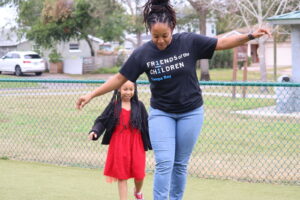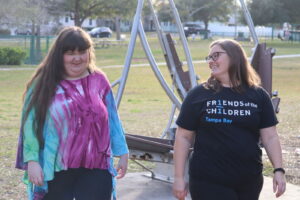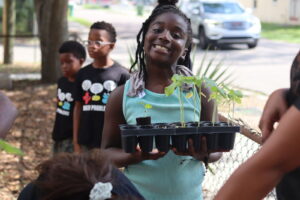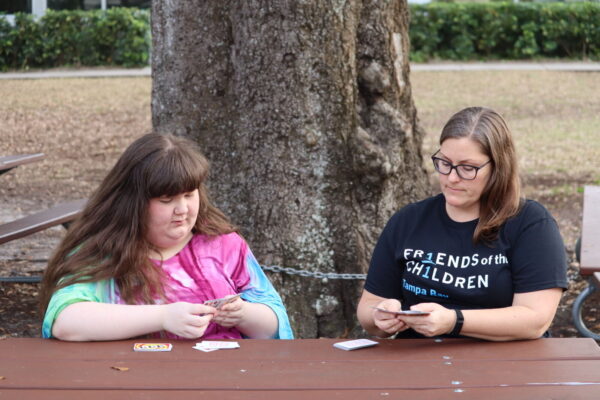

Our model is distinct, courageous and proven. We have redefined the youth mentoring field by creating the first and only long-term professional mentoring program in the country. Our Friends are experts in building sustained and nurturing relationships with youth. We specialize in working with youth who have faced a lot of adversity. We have the data to show that it's real and it works.
Our model was founded on research showing that the single most important factor in overcoming childhood adversity is a long-term, nurturing relationship with a consistent and caring adult. Research over the past three decades continues to affirm how much these relationships matter.
Our trauma-informed, long-term mentoring model is now being sought after by communities and systems around the country and the world. They recognize that children who've experienced a lot of adversity need more specialized and long-term mentoring relationships that Friends of the Children–Tampa Bay provides.

We select children who could most benefit from a relationship with a long-term professional mentor.
Like all children, the youth we serve have unique talents, varied interests and big dreams. Unlike other programs, we exclusively focus on children who are also facing systemic obstacles and who have lived through a lot of trauma. Our youth have experienced multiple adverse childhood experiences (ACEs) by the time they reach kindergarten. We partner with community organizations, schools and foster care systems to help us identify children ages 4 to 6 who could most benefit from a relationship with a Friend.

We hire and train full-time paid professional mentors called Friends.
Our Friends' full-time job is to empower and support youth and their caregivers. Moving mentorship out of the volunteer realm is key to getting the quality, consistency and commitment our children and their families deserve in the relationship. Each Friend works with eight to ten youth, spending three to four hours every week with or on behalf of each child.

We commit for the long term.
We commit to every child for the long term, from kindergarten through graduation. 12+ years, no matter what.

We focus on the complete transformation of each child.
Each child gets a dedicated, one-on-one Friend who spends a minimum of 16 intentional hours per month with them. We develop a road map for each child and design activities to build life skills. We create meaningful experiences to explore each child’s unique talents and interests.

Our work is relationship-based, individualized and intentional.
Each child gets a dedicated, one-on-one Friend who spends a minimum of 14 to 16 intentional hours per month with them. Friends and youth set goals and design activities that advance those goals and build life skills. Friends create meaningful experiences to explore each child's unique talents and interests. Friends of the Children has developed nine research-based Core Assets, which are specific qualities we focus on to ensure the social and emotional development of our youth.

We evaluate, measure and improve.
We are equal parts head and heart. Data from Friends, youth and caregivers help us continuously improve and do our best day-to-day work. Ongoing third-party research and evaluation drive program improvement and innovation. Right now, our model is the focus of an ongoing longitudinal randomized-controlled trial–the longest of its kind–run by researchers from the University of Washington and New York University.
We call our professional mentors Friends because it isn't just a job. They are forming meaningful relationships with our youth that last for years.


The Harvard Business School Association of Oregon showed that for every $1 invested in Friends of the Children, the community benefits over $7 in saved social costs. Helping one child saves the community $900,000.
92% of youth go on to enroll in post-secondary education, serve our country or enter the workforce.
83% of youth receive their high school diploma or GED.
93% of youth remain free from involvement in the juvenile justice system.
98% of youth wait to parent until after their teen years.